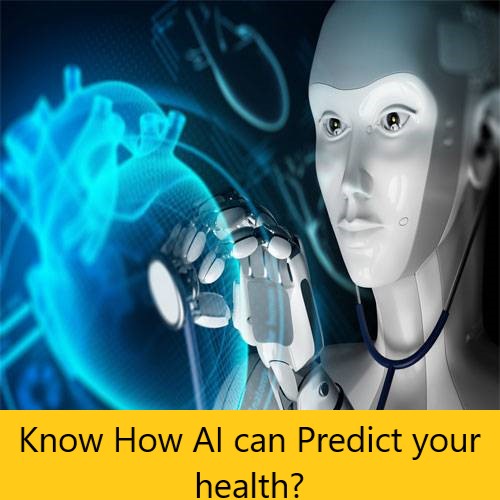Artificial Intelligence (AI) has the potential to contribute significantly to the field of healthcare and can be used to predict various aspects of an individual’s health. Some of the things AI can predict about your health include:
- Disease Risk Assessment: AI algorithms can analyze large datasets, including genetic information, lifestyle factors, and medical history, to assess an individual’s risk of developing certain diseases. This can help in early intervention and preventive measures.
- Diagnostic Support: AI systems can assist healthcare professionals in diagnosing medical conditions by analyzing medical images (such as X-rays, MRIs, and CT scans) and identifying patterns or anomalies that may be indicative of diseases.
- Monitoring Chronic Conditions: AI-powered devices and applications can monitor and track the health status of individuals with chronic conditions. They can analyze data from wearables, sensors, and other devices to provide insights into disease management.
- Medication Adherence: AI applications can help predict and improve medication adherence by analyzing patient data and providing reminders. This is crucial for managing chronic conditions and preventing complications.
- Mental Health Predictions: AI tools can analyze language patterns, social media activity, and other digital data to assess and predict mental health conditions such as depression, anxiety, or stress. This can facilitate early intervention and support.
- Health Trend Analysis: By analyzing large datasets, AI can identify health trends and patterns in populations. This information can be used for public health planning, resource allocation, and early detection of emerging health issues.
- Personalized Treatment Plans: AI can analyze individual patient data to create personalized treatment plans. This includes considering genetic information, lifestyle factors, and responses to previous treatments to recommend the most effective and tailored interventions.
- Healthcare Resource Optimization: AI can predict patient admission rates, identify potential disease outbreaks, and optimize resource allocation within healthcare systems. This helps hospitals and healthcare providers to be better prepared for patient needs.
- Genomic Analysis: AI can analyze genomic data to predict susceptibility to certain diseases, potential drug responses, and the likelihood of genetic conditions being passed on to future generations.
- Real-time Health Monitoring: AI-powered devices can continuously monitor various health parameters in real-time, providing immediate feedback and alerts for any concerning changes. This is particularly valuable for individuals with acute or critical health conditions.
It’s important to note that while AI holds great promise in healthcare, ethical considerations, data privacy, and regulatory guidelines must be carefully addressed to ensure responsible and secure implementation.

